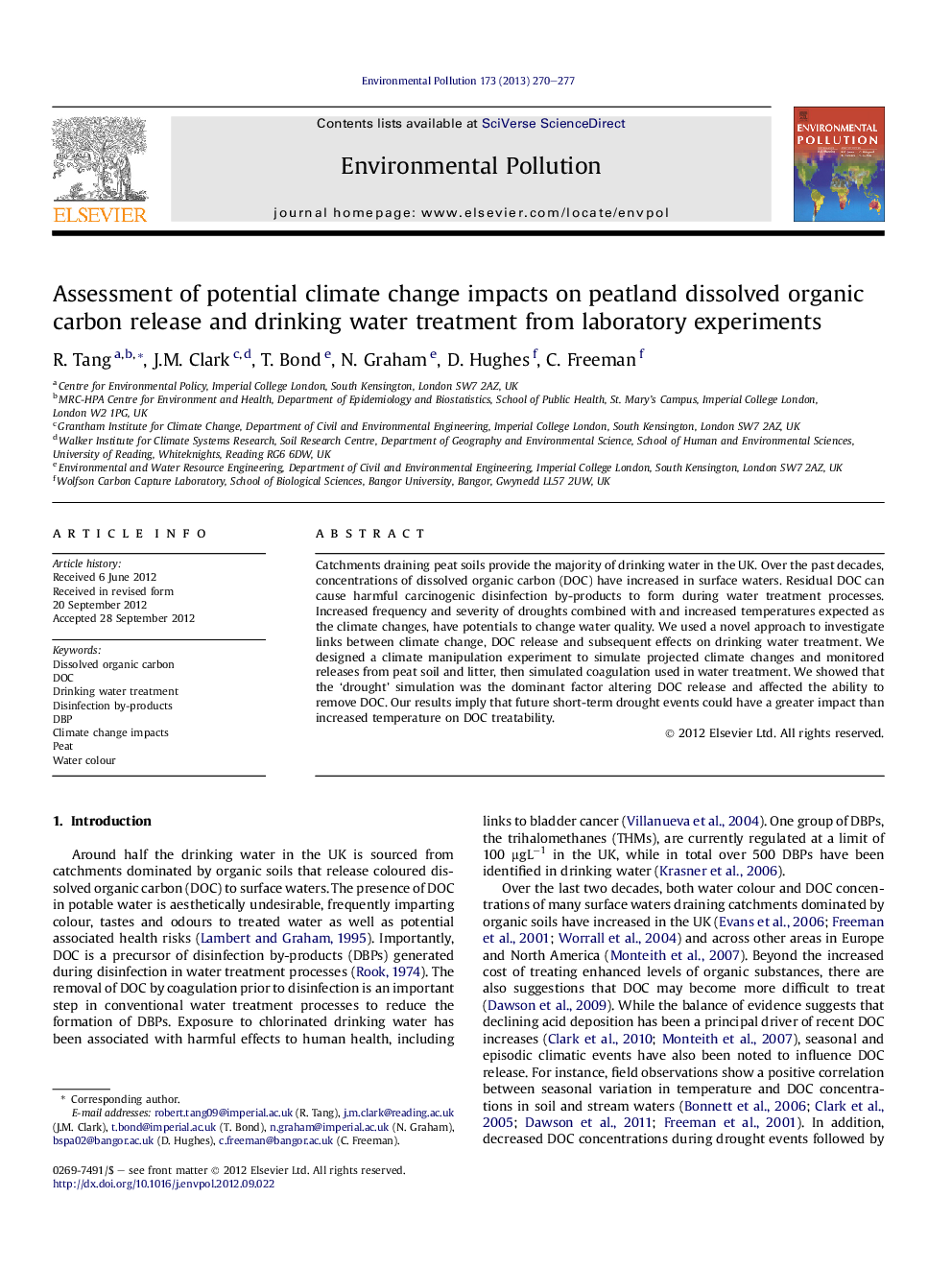| کد مقاله | کد نشریه | سال انتشار | مقاله انگلیسی | نسخه تمام متن |
|---|---|---|---|---|
| 4424499 | 1619199 | 2013 | 8 صفحه PDF | دانلود رایگان |

Catchments draining peat soils provide the majority of drinking water in the UK. Over the past decades, concentrations of dissolved organic carbon (DOC) have increased in surface waters. Residual DOC can cause harmful carcinogenic disinfection by-products to form during water treatment processes. Increased frequency and severity of droughts combined with and increased temperatures expected as the climate changes, have potentials to change water quality. We used a novel approach to investigate links between climate change, DOC release and subsequent effects on drinking water treatment. We designed a climate manipulation experiment to simulate projected climate changes and monitored releases from peat soil and litter, then simulated coagulation used in water treatment. We showed that the ‘drought’ simulation was the dominant factor altering DOC release and affected the ability to remove DOC. Our results imply that future short-term drought events could have a greater impact than increased temperature on DOC treatability.
► We model realistic temperature and moisture changes on peat and surface vegetation.
► Quantity, quality and treatability changes of dissolved organic carbon were examined.
► Moisture has significantly greater influence than temperature on DOC production.
► Dry conditions alter treatability of DOC released from surface litter.
► Droughts have greater impact on water treatment than short-term heat waves alone.
Journal: Environmental Pollution - Volume 173, February 2013, Pages 270–277